The Evidence Consortium on Women's Groups (ECWG) and University College London (UCL) Centre for the Health of Women, Children and Adolescents hosted a webinar to discuss findings of mixed-methods systematic review on community interventions with women’s groups to improve health outcomes in India. Dr. Sapna Desai and Dr. Audrey Prost presented a summary from a review of 99 studies, which was followed by a discussion of how the findings can inform large-scale programs with women’s groups implemented by the National Health Mission and National Rural Livelihoods Mission.
Discussants:
Rajani Ved
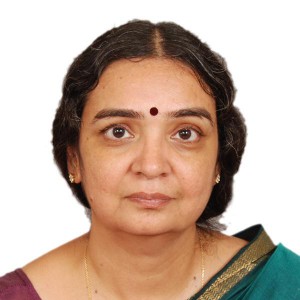
Dr. Rajani R. Ved is the Executive Director at the National Health Systems Resource Center, which provides technical support to the Government of India’s National Health Mission. Her work focuses on linking community processes with health systems and supporting the implementation of comprehensive primary health care. Her expertise includes design and evaluation of large-scale health programmes, implementation research and scaling up. She has worked for nearly thirty years as a practitioner researcher with grassroots NGOs, governments, donors and private foundations in programme implementation, evaluation and research and policy formulation in the area of women and children’s health and nutrition and health systems. She has a degree in medicine from Madras University and a Master’s in Public Health from Harvard University.
Vijayendra Rao
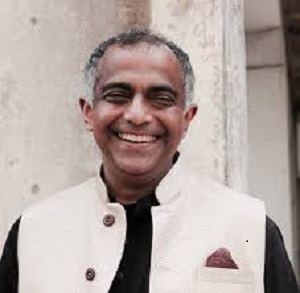
Dr. Vijayendra (Biju) Rao, a Lead Economist in the Development Research Group of the World Bank, works at the intersection of scholarship and practice. He integrates his training in economics with theories and methods from anthropology, sociology and political science to study the social, cultural, and political context of extreme poverty in developing countries. He leads the Social Observatory, an inter-disciplinary effort to improve the conversation between citizens and governments. His research, published in the American Economic Review, the American Political Science Review, the European Economic Review, the Journal of Development Economics, World Development and other places has spanned a variety of subjects. His recent work has focused on participatory approaches to development, deliberative democracy, and voice and agency among the poor. His most recent book, co-authored with Paromita Sanyal, is Oral Democracy: Deliberation in Indian Village Assemblies (Cambridge University Press). Dr. Rao obtained a BA in Economics from St. Xavier’s College, Bombay University, and a PhD in Economics from the University of Pennsylvania.
Purnima Menon
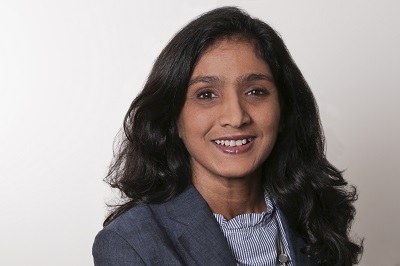
Dr. Purnima Menon is a senior research fellow at the International Food Policy Research Institute, and is based in New Delhi, India. She is the theme leader for South Asia Nutrition Programs in IFPRI’s Poverty, Health, and Nutrition Division. In her work in India, Dr. Menon directs POSHAN (Partnerships and Opportunities to Strengthen and Harmonize Actions for Nutrition in India), an initiative to support more use of evidence for nutrition in India. She conducts implementation research on scaling up maternal and child nutrition interventions, including on evaluating large-scale behavior change communications programs in nutrition and health. Dr. Menon has research experience in India, Bangladesh, Ethiopia, Haiti, Viet Nam and Nepal, has published extensively, and invests deeply in research translation in her engagements with policy communities. Dr. Menon has a PhD in International Nutrition from Cornell University and an MSc in Nutrition from the University of Delhi.
Speakers
Sapna Desai
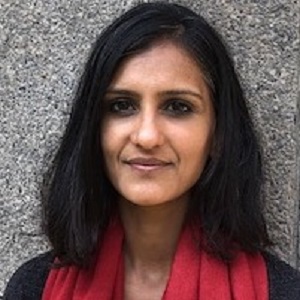
Dr. Sapna Desai is an associate with the Population Council in New Delhi and co-lead of the Evidence Consortium on Women’s Groups. Her work focuses on women’s health and well-being in India, particularly the implementation and evaluation of community-based interventions, sexual and reproductive health and rights, and health systems research. With the ECWG, she works with partners to consolidate evidence from implementation, monitoring and evaluation of women’s groups interventions in different settings. Sapna previously spent over a decade working with the Self-Employed Women’s Association (SEWA), a union of women workers in India’s informal economy, where she led the scale-up of SEWA’s community health program in six states of India and conducted research on women’s health and health insurance. She holds a PhD in epidemiology and population health from the London School of Hygiene and Tropical Medicine, an MS in population and international health from Harvard University and AB in international relations from Brown University.
Audrey Prost

Dr. Audrey Prost is a social anthropologist with training in epidemiology, and director of the Centre for the Health of Women, Children and Adolescents at University College London (UCL). Her research focuses on the design and evaluation of participatory community interventions to improve women’s, children’s and adolescents’ health. She works at UCL’s Institute for Global Health and in close collaboration with the Indian civil society organisation Ekjut. Ekjut and UCL have conducted four evaluations of community-based interventions to improve maternal and newborn health, children’s growth, and adolescent health in Jharkhand and Odisha, eastern India. Audrey also co-wrote a systematic review of interventions with participatory women’s groups to improve maternal and newborn health, which led to a 2014 WHO recommendation. Her current work focuses on developing participatory community interventions to improve early childhood development and adolescent health.
Moderator
Ashwin Iyer
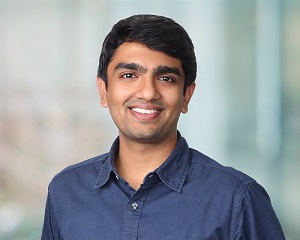
Ashwin Iyer is a Strategy Officer at the BMGF India Country Office. For the last 6 years, he has been working with the Foundation’s programs in Bihar – spanning across Health & Nutrition interventions with community health workers, public health facilities, Government Health systems and elimination of neglected tropical diseases. He has also been deeply engaged with the Foundation’s support to large-scale women’s Self-Help Group programs in Bihar, strongly believing in the power of women’s collectives to drive social change among vulnerable populations, and has keenly followed programs that explore the intersections of Health and women’s collectives.